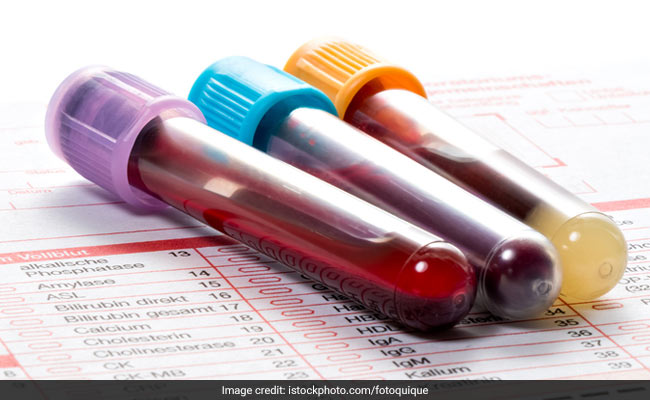Dr Rakhi Maiwall explains what are the normal levels of SGOT and SGPT in our liver blood tests and what should we do in case there is a increase in the levels of these enzymes.

SGOT and SGPT are common blood tests.
HIGHLIGHTS
- Basic liver blood tests determines the level of SGOT and SGPT.
- Normal SGOT and SGPT levels are 30 and 19 in males and females.
- Constant increases in SGOT/SGPT levels indicate chronic liver diseases.
People who live a sedentary lifestyle, do not eat healthily and constantly consume alcohol are likely to develop fatty liver or cause other damages to the liver. One of the most common blood tests is a liver blood test, which assesses liver functions or liver injury. A basic liver blood test determines the level of certain enzymes (proteins) in the blood, which regulate the functioning of important chemical reactions in the body. Among the most sensitive and widely used liver enzymes are the aminotransferases. They include aspartate aminotransferase (AST or SGOT) and alanine aminotransferase (ALT or SGPT).
An increase in the SGOT and SGPT levels are indicative of a certain liver damage and getting a proper diagnosis is recommended in that case.
"The normal levels of 30 for males and 19 for females, irrespective of the laboratory through which the tests are done," says Dr Rakhi Maiwall.
Also read our expert advice: What are SGOT and SGPT?
"Some labs state that the normal range is 45, and people assume that their SGOT and SGPT levels are normal. However, a study was recently conducted among Asian patients which stated that 19 and 30 are normal upper limits of SGOT and SGPT in female and males respectively" she adds.
She goes on to explain what SGOT and SGPT levels in a blood test can refer to. "An increase in SGOT and SGPT tests means that your liver cells are getting damaged. The damage can be because of many reasons. Sometimes, these damages can happen for a temporary period of time. For instance, there are chances that after three months, your SGOT and SGPT levels are back to normal. But there are also chances that your SGOT and SGPT are on a continuous rise since six months. This signifies that there is a chronic disease in your liver and you need to get a proper diagnosis done to find out the reason for it," says Dr. Rakhi.
Consistently rising levels of SGOT and SGPT is the second stage of liver damage, says Dr Rakhi. "The damage enters the third stage when levels continue to rise for at least a year, then it is called fibrosis. Proper diagnosis of this is done using a fibroscan. The fourth stage is when the damage is consistent, and the fibrosis converts to cirrhosis. In that, it is quite like that SGOT and SGPT do not rise, and other cells in the liver begin to damage. At this stage, the liver is permanently damaged," she says.
Also, read our expert advice: What are the normal levels of SGOT and SGPT?
Dr. Rakhi further stresses on the importance of the level of increase of SGOT and SGPT, i.e. if they are twice or thrice the normal levels. That confirms the severity of the damage done to the liver.
(Dr Rakhi Maiwall is Senior Consultant at Institute of Liver and Biliary Sciences)
Disclaimer: This content including advice provides generic information only. It is in no way a substitute for qualified medical opinion. Always consult a specialist or your own doctor for more information. NDTV does not claim responsibility for this information.
DoctorNDTV is the one stop site for all your health needs providing the most credible health information, health news and tips with expert advice on healthy living, diet plans, informative videos etc. You can get the most relevant and accurate info you need about health problems like diabetes, cancer, pregnancy, HIV and AIDS, weight loss and many other lifestyle diseases. We have a panel of over 350 experts who help us develop content by giving their valuable inputs and bringing to us the latest in the world of healthcare.














